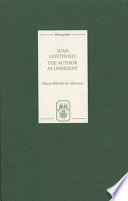 | Austin E. Quigley - 2008 - 286 páginas
...exchange: Language, for the individual consciousness, lies on the borderline between oneself and the other. The word in language is half someone else's. It becomes...populates it with his own intention, his own accent, when he appropriates the word, adapting it to his own semantic and expressive intention. Prior to this... | |
 | Brenda Jo Brueggemann - 2004 - 232 páginas
...own language? Why must literacy for Deaf students mean English literacy? CHOOSING OUR OWN LANGUAGE The word in language is half someone else's. It becomes...own" only when the speaker populates it with his own intentions, his own accent, when he appropriates the word, adapting it to his own semantic and expression... | |
 | Alison Ribeiro de Menezes - 2005 - 222 páginas
...autobiographical act - but one that does not, in the process, silence or destroy the other. As Bakhtin remarks: The word in language is half someone else's. It becomes...populates it with his own intention, his own accent, when he appropriates the word, adapting it to his own semantic and expressive intention. Prior to this... | |
 | Hans Lauge Hansen - 2005 - 336 páginas
...subjektet altid kun kunne tage ordet i form af et kulturelt situeret og diskursivt konstrueret selv: The word in language is half someone else's. It becomes...populates it with his own intention, his own accent [...) adapting it to his own semantic and expressive intention. Prior to this moment of appropriation... | |
 | Luis C. Moll - 1990 - 444 páginas
..."ventriloquation" (Bakhtin, 1981; Holquist, 1981), or the process whereby one voice speaks through another. The word in language is half someone else's. It becomes...populates it with his own intention, his own accent, when he appropriates the word, adapting it to his own semantic and expressive intention. Prior to this... | |
 | Jeffrey Carroll - 2005 - 208 páginas
...[L]anguage, for the individual consciousness, lies on the borderline between oneself and the other. The word in language is half someone else's. It becomes...populates it with his own intention, his own accent, when he appropriates the word, adapting it to his own semantic and expressive intention. Prior to this... | |
 | Patricia Parker - 2005 - 254 páginas
...2004 Acts of Silence, Acts of Speech: How to Do Things with Othello and Desdemona HARRY BERGER JR. The word in language is half someone else's. It becomes...populates it with his own intention, his own accent, when he appropriates the word. . . . Prior to this moment of appropriation, the word . . . exists in... | |
 | Uta M. Quasthoff, Tabea Becker - 2005 - 320 páginas
...talks about the appropriation of words, Wersch also writes that Bahktin believed that, "The word in a language is half someone else's. It becomes 'one's...populates it with his own intention, his own accent, when he appropriates the word, adapting it to his own semantic and expressive intention" (John-Steiner... | |
 | Christina E. Erneling, David M. Johnson - 2005 - 512 páginas
...and social; it lies "on the borderline between oneself and the other." As Bakhtin goes on to explain: The word in language is half someone else's. It becomes...own" only when the speaker populates it with his own intentions, his own accent, when he appropriates the word, adapting it to his own semantic and expressive... | |
 | Rudolph P. Byrd - 2005 - 240 páginas
...process of achieving voice is one that involves, according to Bakhtin, appropriation and self-assertion: "The word in language is half someone else's. It becomes...own' only when the speaker populates it with his own intentions, his own accent, when he appropriates the word, adapting it to his own semantic and expressive... | |
| |